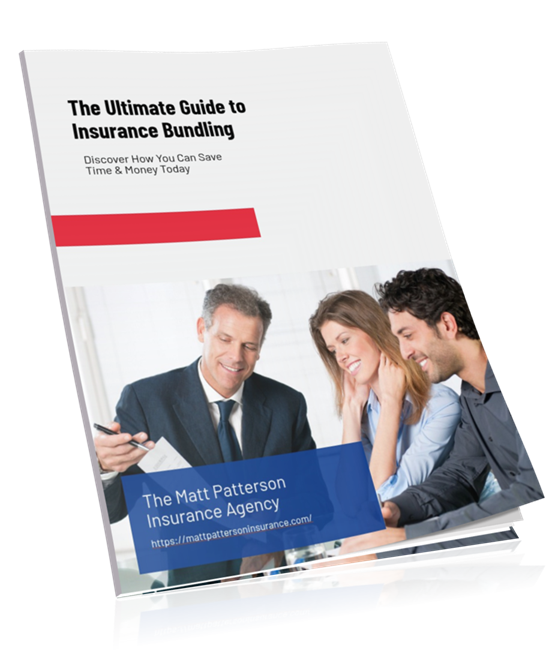Understanding Commercial Auto Insurance
New Braunfels auto insurance, specifically business auto insurance, provides coverage for vehicles used primarily for business purposes. This type of commerical insurance in New Braunfels TX is distinct from personal auto insurance in that it caters specifically to the unique risks and liabilities associated with commercial driving.
Understanding the nuances of your commercial vehicle insurance is crucial for protecting your business assets. Coverage can include liability for bodily injury and property damage, medical payments, uninsured motorist protection, and physical damage to your vehicles.
The scope of your policy determines how well you are shielded from financial losses resulting from accidents or other incidents involving your business vehicles.
Who is Insured Under a Commercial Auto Policy?
The definition of an insured individual under a commercial auto policy often encompasses three main categories:
- Named Insured: Typically the business owner or entity listed on the policy.
- Permissive Users: Individuals who have permission from the named insured to operate a covered vehicle.
- Omnibus Insureds: Certain individuals defined within the policy without needing to name them specifically.
Obtaining a comprehensive commercial auto policy quote tailored to your specific needs ensures you have adequate commercial auto coverage to protect against potential liabilities. Understanding these elements helps you manage risks effectively, ensuring that every person involved in operating your business vehicles is properly insured.
Named Insured
The named insured in a commercial auto policy refers to the person or entity explicitly listed on the policy document. Typically, this is the business owner or the company itself. The named insured holds significant roles and responsibilities, such as:
- Ensuring all vehicles and drivers are correctly listed.
- Maintaining accurate records of vehicle usage.
- Reporting any changes in business operations relevant to the policy.
Coverage limits for the named insured are often the most comprehensive within the policy framework. This means that in case of an accident, the named insured is protected up to the maximum limits specified in their commercial auto insurance.
Accurate Information is crucial. Any discrepancies can result in claim denials, reduced payout amounts, or even policy cancellations. For instance, if a business fails to report a new vehicle or driver, it risks significant financial exposure during accidents.
Being meticulous about these details helps in safeguarding both the financial and operational aspects of your business under a commercial auto policy.
Permissive Users
Permissive users are individuals given permission by the named insured to drive a vehicle covered under a commercial auto policy. They are important because they broaden the coverage of the policy to include drivers other than the primary insured, thus providing wider protection.
Adding Drivers to a Commercial Auto Policy
To add drivers to a commercial auto policy, you need:
- Documentation: Submit the necessary paperwork to your insurance provider, detailing each driver you wish to add.
- Driver’s Information: Provide accurate and complete information, including driver’s license details and driving history.
Importance of Evaluating Driving History
It is essential to evaluate the driving history of potential permissive users. Insurance providers usually require a thorough examination of each driver’s record to determine risk. This includes:
- Accident History: Checking for any previous accidents or traffic violations.
- Experience: Evaluating the number of years they have held a driver’s license.
- Background Checks: Conducting thorough background checks to ensure reliability.
Permissive users increase your business’s operational flexibility while still having important coverage. This makes it easier to handle risks related to different drivers using company vehicles.
Omnibus Insureds
Understanding the concept of omnibus insureds is crucial for businesses holding commercial auto policies. The omnibus clause extends coverage to individuals who are not explicitly named in the policy but are permitted to drive the business’s vehicles. This includes employees, volunteers, or other persons engaged in business activities.
Coverage under Commercial Policies:
- Provides protection similar to the named insured and permissive users.
- Ensures that all potential drivers who might use the vehicle for business purposes are covered.
The legal implications tied to omnibus insureds often center around vicarious liability. This principle holds an employer or principal legally responsible for the actions of their employees or agents while they perform duties within their employment scope.
Examples of Situations Where Omnibus Coverage Applies:
- An employee drives a company vehicle to deliver goods and is involved in an accident.
- A volunteer uses a business van for a work-related event and causes damage.
- A contractor hired by your business uses a covered vehicle temporarily and encounters a collision.
Such scenarios highlight the importance of having omnibus insured coverage, protecting businesses from unforeseen liabilities and potential financial losses linked to third-party actions. In essence, ensuring your policy includes these provisions can safeguard your enterprise against various operational risks.
Additional Coverage Considerations for Businesses with Vehicles
Businesses that use personal vehicles for work purposes should prioritize adding a non-owned auto liability endorsement to their commercial auto insurance.
This endorsement provides liability coverage when employees drive their own cars for business-related tasks, such as client meetings or delivery services. Without this endorsement, your business could face significant financial risk if an accident occurs during these activities.
Hired and Non-Owned Auto Insurance Options
For businesses that frequently rent or hire vehicles, hired and non-owned auto insurance is essential. This type of coverage protects against liabilities arising from the use of rented or leased vehicles. It also applies when employees use their personal vehicles for business operations.
- Hired Auto Insurance: Covers liabilities from renting or leasing vehicles for business purposes.
- Non-Owned Auto Insurance: Extends to personal vehicles used by employees on behalf of the business.
These coverages ensure that your business remains protected in various scenarios involving different types of vehicles. They are particularly valuable for companies with diverse transportation needs, including those that do not own a fleet but rely on rental cars or employee-owned vehicles to conduct their operations.
Cost Factors in Commercial Auto Insurance and Finding the Right Provider
Factors Influencing the Cost of Commercial Auto Insurance Premiums
Understanding what affects the cost of commercial auto insurance is crucial for managing expenses. Key factors include:
- Vehicle Type and Usage: Heavier and more expensive vehicles typically have higher premiums. Frequent, long-distance trips also increase costs.
- Driving Records: Both the business’s and individual drivers’ histories impact rates. Clean records often result in lower premiums.
- Coverage Limits and Deductibles: Higher coverage limits and lower deductibles increase premium costs but offer greater protection.
- Location: Areas with higher traffic density or crime rates tend to have higher premiums.
Tips for Finding an Appropriate Provider and Ensuring Adequate Car Insurance Quotes in New Braunfels
Selecting a reliable commercial auto insurance provider ensures comprehensive protection. Consider these tips:
- Compare Multiple Quotes: Evaluate different providers to find competitive rates that suit your budget.
- Check Reviews and Ratings: Research customer reviews and industry ratings to gauge reliability.
- Evaluate Coverage Options: Ensure the policy covers all potential risks relevant to your business operations.
- Consult an Insurance Agent: Professionals can provide tailored advice based on your specific needs.
By considering these factors and tips, you can effectively manage the cost of commercial auto insurance while ensuring adequate coverage for your business.
Protect Your Business on the Road with Comprehensive Coverage
Evaluating your current coverage needs is essential to ensure that your business is adequately protected.
Contact the Matt Patterson Insurance Agency to discuss your specific requirements and get a personalized quote for your needs. Whether you’re looking for a commercial vehicle insurance quote, business car insurance, or car insurance quotes in New Braunfels, we offer tailored solutions to meet your needs.








